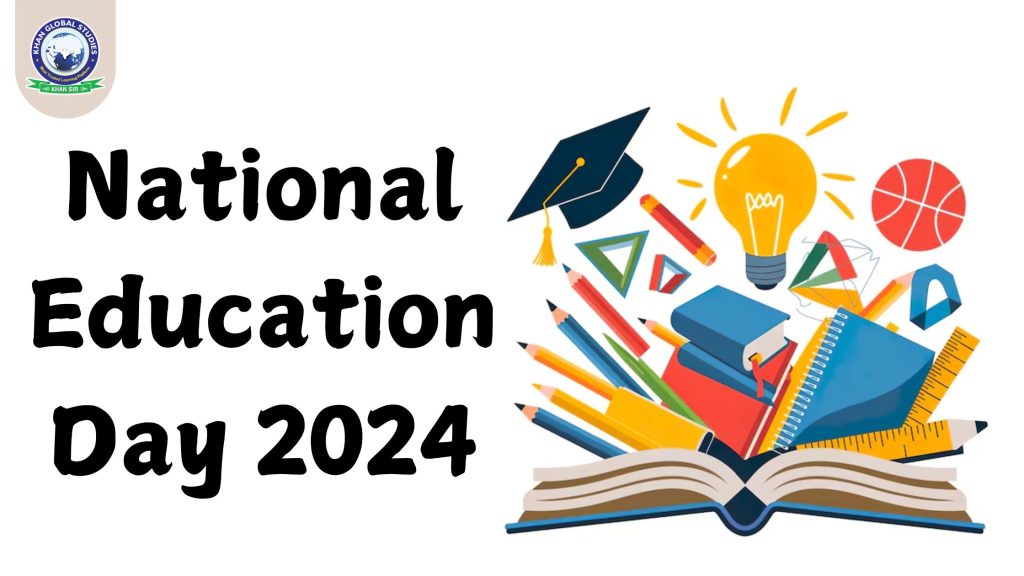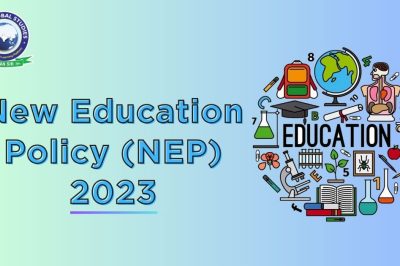National Education Day is celebrated every year on November 11 in India. This important day marks the birth anniversary of Maulana Abul Kalam Azad, the first education minister of independent India and an influential education reformer. Known for his vision and commitment to education, Maulana Azad played a key role in shaping India’s educational landscape. He believed in making education accessible to all and emphasized the importance of scientific advancement and modern education. National Education Day aims to highlight the importance of education in nation-building, especially in a country where more than 65% of the population is below the age of 35. Ensuring quality education and skill development for this huge youth demographic is essential for India’s development.
Transforming India Through Education
The Indian government has taken several initiatives to make education more accessible and inclusive. One of the most important steps was the Right to Education (RTE) Act 2009, which made education a fundamental right for children between the ages of 6 and 14. This law ensures that every child receives free and compulsory primary education. Another milestone was the 86th Constitutional Amendment under Article 21-A, which further strengthened the commitment to universal education.
Historical Significance of National Education Day
The Government of India declared November 11 as National Education Day in 2008 to honour Maulana Abul Kalam Azad’s contribution to the field of education. He believed that education was the key to social and economic transformation. During his tenure as Education Minister from 1947 to 1958, Azad laid the foundation of several prestigious educational institutions. His lasting legacies include the establishment of the University Grants Commission (UGC), the Indian Institutes of Technology (IITs) and the Indian Institute of Science (IISc). These institutions remain important to India’s higher education and research landscape even today.
Maulana Azad also emphasised the importance of education for women and marginalised communities. His policies aimed to make education accessible to all sections of society, reinforcing his belief that education is the cornerstone of democracy.
Significance of National Education Day
National Education Day is not just about remembering the legacy of Maulana Azad; it is a reminder of the transformative power of education. Schools, colleges, and universities across India celebrate this day with various activities such as:
- Seminars and debates on contemporary educational challenges and innovations.
- Workshops and rallies to promote the importance of literacy and education.
- Essay competitions and cultural programs highlight the historical and current significance of education.
These activities aim to inspire students, teachers, and policymakers to work collectively towards providing equitable and quality education for all.
Current Challenges and Way Forward
Despite significant progress, the Indian education system continues to face several challenges, including unequal access to education, high dropout rates, and variations in the quality of education across different regions. National Education Day is an opportunity to reflect on these challenges and renew the nation’s commitment to educational reforms.
Key Government Initiatives
National Education Policy (NEP) 2020
The National Education Policy (NEP) 2020 was launched with the aim of bringing about a radical transformation in the Indian education system to meet the needs of the 21st century. This comprehensive policy focuses on holistic education, inclusiveness, and skill-based learning. It promotes multidisciplinary education and aims to bridge the gap in access to quality education at all levels from primary to higher education.
PM Shri Yojana
The PM Shri Yojana, launched on September 7, 2022, aims to upgrade over 14,500 schools across India to become model schools under the National Education Policy 2020. These schools will serve as centres of excellence that will showcase the implementation of key components of NEP 2020.
Samagra Shiksha Abhiyan
Launched on April 1, 2021, the Samagra Shiksha Abhiyan focuses on providing inclusive and equitable education for all, ensuring that no child is left behind. It integrates pre-primary, primary and secondary education, leading to a more seamless education system.
Nupani Bharat Mission
Launched on July 5, 2021, the Nipun Bharat Mission aims to achieve basic literacy and numeracy for all children by the end of Grade 3 by 2026-27. This initiative is crucial to ensure that children develop essential skills in their early years.
Vidya Pravesh
Launched on July 29, 2021, the Vidya Pravesh initiative aims to introduce young learners to the school environment before they enter Grade 1, ensuring a seamless transition from home to school life.
Diksha Platform
Launched on September 5, 2017, the Diksha platform is a digital learning platform for teacher training and professional development. It provides educational content for both teachers and students and supports distance learning and continuous skill development.
Investing in Education: Building the Future
In the 2024-25 Budget, the Government of India allocated ₹73,498 crore to the Department of School Education and Literacy. This includes significant funding for Kendriya Vidyalayas (₹9,302 crore) and Navodaya Vidyalayas (₹5,800 crore), which are critical to providing quality education to students across the country. These investments are critical to ensuring that India’s education system is well-equipped to meet the challenges and opportunities of the future.
Progress in Higher Education: AISHE Report 2021-22
The All India Survey on Higher Education (AISHE) report for 2021-22 shows a significant increase in student enrolment in higher education. The report also highlights an increase in female participation, reflecting progress towards gender equality in education. These trends demonstrate India’s commitment to expanding access to higher education and promoting a more educated society.
Conclusion
National Education Day symbolizes the transformative power of education in shaping the future of the nation. By remembering the contributions of Maulana Abul Kalam Azad and striving for continuous improvement in our education system, India can ensure a brighter, more inclusive future for generations to come. As Maulana Azad once said, “True education can bring revolutionary changes in society.” This day should inspire collective efforts to provide quality education for all citizens, leading to a more enlightened and progressive nation.
Frequently Asked Questions
Q 1: Why is National Education Day celebrated?
Answer: National Education Day is celebrated to honor the contributions of Maulana Abul Kalam Azad, India’s first education minister, and his vision for the country’s education system.
Q 2: What are the major government schemes for education?
Answer: Some of the major government initiatives include the National Education Policy (NEP) 2020, PM SHRI Yojana, Samagra Shiksha Abhiyan, NIPUN Bharat Mission, and DIKSHA Platform.
Q 3: What is the aim of NEP 2020?
Answer: NEP 2020 aims to build a holistic, inclusive and 21st century-ready education system for India with an emphasis on multidisciplinary education and skill development.






